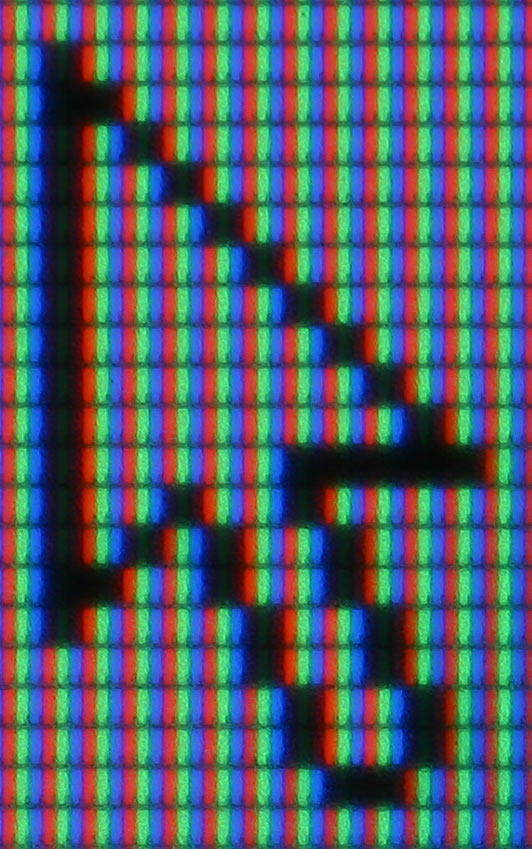Greensides: My friend Oscar, he won’t mind me telling the story, you know him /
Boyce: (From the hole) / No /
Greensides: / He’s a bit slow, was at school with us. You know Rita.
Boyce: Who’s Rita?
Greensides: His German girlfriend.
Boyce: Christ, are they still together?
Greensides: Yeah I know. Sickening isn’t it? She’s moved to Berlin now though, long distance thing.
Boyce: They not married yet?
Greensides: Not yet. They manage to keep it together though. He goes over there every few months and she comes over here every few months.
Boyce: Whatever works.
Greensides: Exactly, whatever works for them. And they’re a really nice couple, very much in love, you should see the way they stare at each other, there’s a definite intensity...Oscar does tend to stare a lot though.
Boyce: Lazy eye right?
Greensides: That’s it, lazy eye, always goes a-wandering in that head of his.
So it’s Oscar’s birthday and Rita gets him a nice new pair of trousers, very high quality, well fitting. She mails them over from Berlin, air mail, and, I don’t know if the cargo plane was uncharacteristically hot, or if they got wet, or whatever, but this lovely pair of trousers decides to shrink several sizes between Berlin and London. End up this big. (Greensides indicates around two feet using his hands)
Oscar on the morn of his birthday opens this soiled parcel and, the stupid fuck he is, thinks that these tiny trousers must be the latest German fashion.
God knows how he managed to squeeze himself into them, but he did, and, to be honest, it didn’t look that bad. It was generally more impressive than disgusting.
A whole week he managed in them, and people had kind of gotten used to it; the way he would waddle over with his belly just slightly folded over the top. Then, one day he’s queuing up in the post office, it’s Monday so it’s pretty busy, he’s there to post a small jar of toffees to Rita. She’d never eaten toffee before, can you believe that? Apparently she wasn’t allowed them as a child and fell into the habit of avoiding them for fear of tooth-rot. Oskar thought that was ridiculous, I mean nothing’s wrong with a moderate chew, and he came to the decision that a decorative jar of English toffee he’d spotted in Portobello road would make her rethink her childish fears and ergo she would build a stronger, deeper connection to Oskar, resulting in a bridge for the two of them that, although it was separated by the physical distance between London and Berlin, would transcend their previous adolescent lives and lead them to live solely in the present.
I wasn’t there, so I don’t know how things happened, but I do remember it was the first truly hot day of the year and Oskar is well known for his sweaty palms. When his time came to talk to the teller it seemed the act of both balancing the jar of toffee in one hand and pulling out his wallet from his back pocket with the other resulted in him dropping the wallet on the floor.
So he bent over.
Beat.
Boyce: Yeah?
Greensides: I’ve never made a pair of trousers. I do not know the intricacies required to stitch the seams and I do not know how you attach a metal zip to the material. However, it seems that although an average trouser is adequately able to support a comfortable relationship between itself and an individual’s genitals, continuous close contact results in some tender consequences. According to the surgeon, when Oscar bent over it was like pressing a pastry cutter into a soft mound of dough.
Beat.
And, now, he has a zip in his penis.
Pause.
Boyce: Is he okay?
Greensides: He’s fine...well, not really.
Greensides finishes his apple.
I don’t think he can have kids now.
Greensides throws the apple core into the hole.
The apple hits Boyce’s head.
Boyce: Help me up.
Greensides walks to the hole, crouches down next to it and after a few seconds
reaches down into it.
He pulls up Boyce.
Boyce leans on his sledgehammer.
Greensides: This zip, in his manhood, what a thing.
I saw Rita not long ago; bumped into her down Oxford Street - funny how that happens, right? She was visiting Oskar. We ended up going for a drink and she told me all about his condition. I told her it sounded fucking mad, to have a zip like that down there. She swore to God that it was the truth. She admitted that, at first, it became a real issue in their relationship. I mean, can you imagine?
They’re both all right with it now; mostly forget it’s even there. But every so often…Rita said this after a few drinks…every so often when they’re in bed they open it up.
Normally Oskar doesn’t like it being touched…it’s very sensitive you see…he takes quite a bit of convincing. But if Rita lies him down just right, and if she gently pulls it open…
Greensides mimes opening a zip.
It’s like looking into a black hole.
